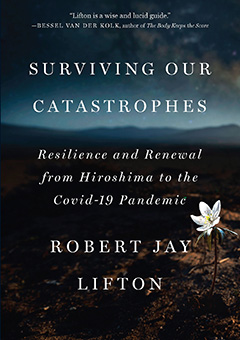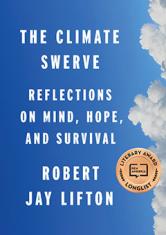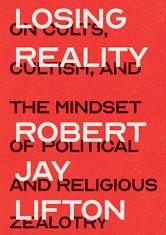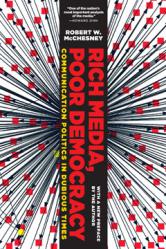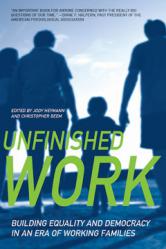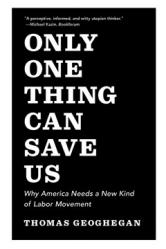“This exquisite distillation of a genius-life’s wisdom turns our age of troubles into a time of unexpected affirmation, abundant possibility. Robert Jay Lifton’s briefest book is—stunningly—his magnum opus.”—James Carroll, author of The Truth at the Heart of the Lie |
“Lifton shows us why we must confront reality in order to save democracy.”—Peter Balakian, Pulitzer Prize–winning author of Ozone Journal |
“Lifton escorts us on a soul-searching journey and gives us an emotional and intellectual road map for accepting and living through catastrophes using what he calls ‘survivor power.’ This book is not just a captivating read; it’s also a life-affirming experience.”—Dr. Michael Osterholm |
“A poignant, beautifully crafted, and compelling case for optimizing our survival as individuals and as a species, Surviving Our Catastrophes is the culmination of a lifetime of inquiry and study of the most horrible and horrifying things human beings do to each other and their ensuant moral injury. Lifton shows how we might and sometimes do heal from such events and their aftermath through bearing witness, remembering, public mourning, and above all, widespread social action and activism. He also shows us how we might come to prevent impending disasters stemming from the human mind when we fail to recognize our common humanity.
”—Jon Kabat-Zinn, founder of MBSR (mindfulness-based stress reduction) and author of Full Catastrophe Living and Coming to Our Senses |
“Lifton, more than anyone alive today, can serve as a wise and lucid guide . . . [to] the remarkably life-affirming responses of survivors of atrocities, and the larger human capacity for collective renewal.”—Bessel van der Kolk, author of The Body Keeps the Score |
“Thought-provoking. . . . Surviving Our Catastrophes is an absorbing sociological study focused on survivors—the keys to social renewal after disasters strike.”—Foreword Reviews |
“If the human race can look back without despair on what it did to itself in the twentieth century (and may well be about to do again), then we should thank the unflinching wisdom of Robert Jay Lifton. This short, utterly necessary book is written at the climax of a very long life, by a man who has looked straight into the black sun of Auschwitz and Hiroshima and yet preserved his moral eyesight. . . . Lifton writes here about victims who become survivors . . . of catastrophes present and to come: COVID-19, nuclear threat, climate change. We have to learn from the survivors of catastrophe ‘if we are to learn the truth about ourselves, if we are to go on living as a species.’”—Neal Ascherson, Scottish journalist and author of Black Sea and the novel The Death of the Fronsac |
|
“Lifton makes a difficult subject accessible . . . the book feels almost like a conversation. In this summation of a lifetime’s work, he distills the wisdom gained from bearing intimate witness to survivors of history’s most terrible events, and offers us all a message of hope.”—Dr. Judith Herman, author of Truth and Repair: How Trauma Survivors Envision Justice |
“Lifton offers a powerful and clear physical and spiritual road map of how to navigate our pain after a personal or global disaster: see it, feel it, own it, share it, and use it.”—Sohaila Abdulali, author of What We Talk About When We Talk About Rape |
“The COVID-19 pandemic appears to us a catastrophe like no other. And yet from the Holocaust to Hiroshima to the War on Terror, the pandemic is but the leading edge of a catastrophic century. To make sense of the plague—to understand it as a medical challenge, moral conundrum, and societal wound—demands the rare writer who has confronted the century’s horrors. In its wisdom and humanity, Surviving Our Catastrophes is an essential book.”—Mark Danner, author of The Massacre at El Mozote, Torture and Truth, and Spiral: Trapped in the Forever War
|
“A thoughtful, pithy, and inspiring narrative. . . . Written with the authority of experience, this book offers a viable path to true recovery.”—Kirkus Reviews |
“Readers will cry and cheer as they immerse themselves in Lifton’s wise, chilling, enlightening, and compassionate book.”—Booklist (starred review) |
“[Surviving Our Catastrophes] cuts through the existential fog to reveal something like hope. . . . Lifton’s wisdom is worth reading—and heeding.”—The Washington Post |
“With the same intellectual rigor and passionate commitment he has brought to his life’s work, Robert Jay Lifton explains how the way we process and memorialize catastrophe—Hiroshima, the AIDS plague, the murderous early days of the COVID pandemic—can reveal, and mobilize, what he calls our ‘human commonality.’ It’s a book we can all be grateful for.”—Daniel Okrent, author of The Guarded Gate and Last Call |
|

